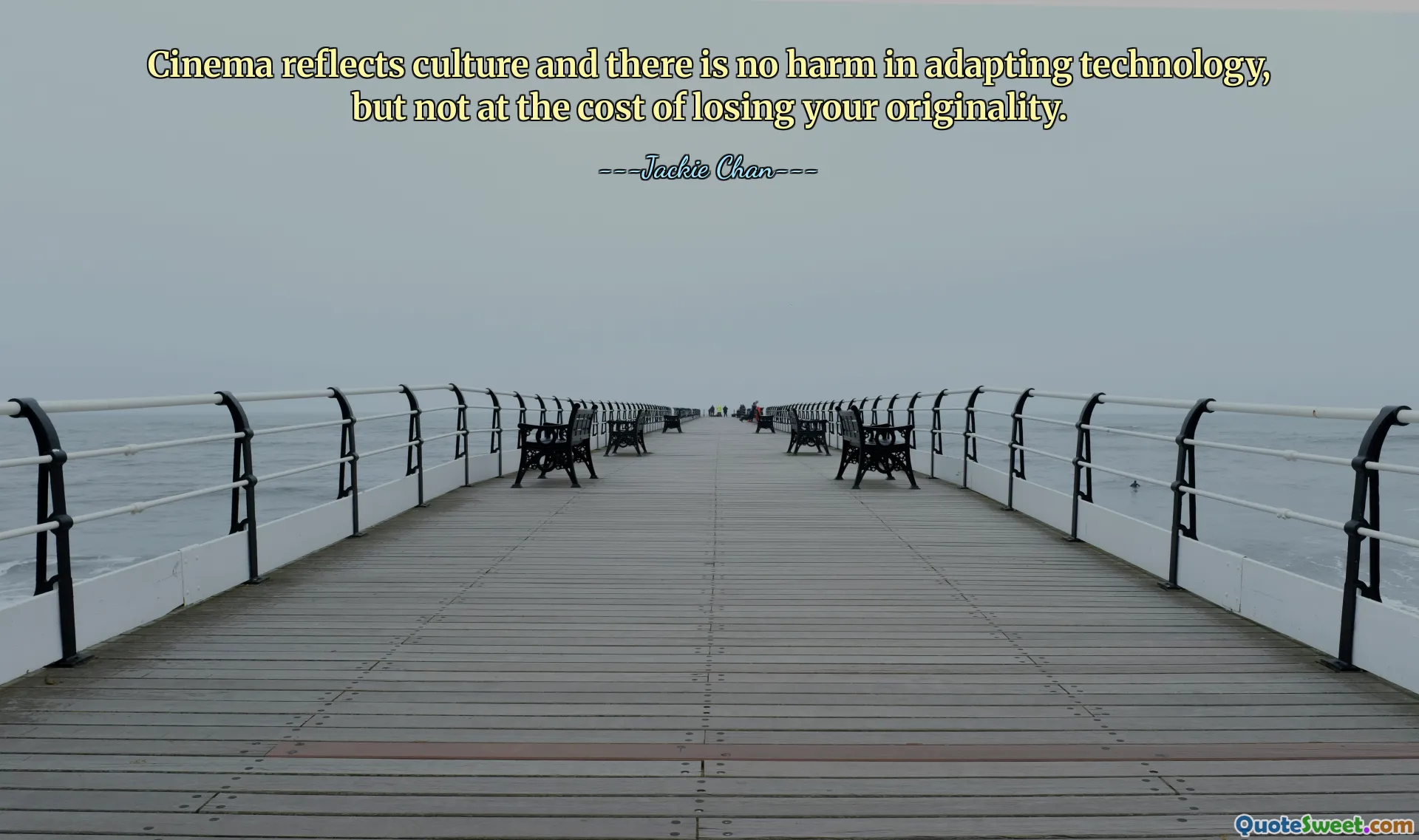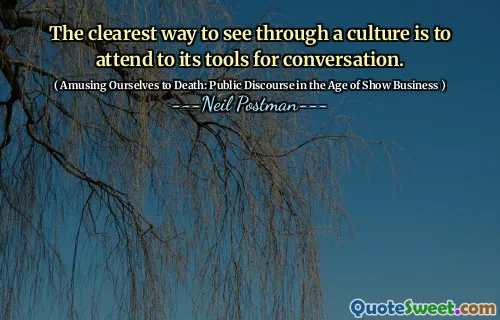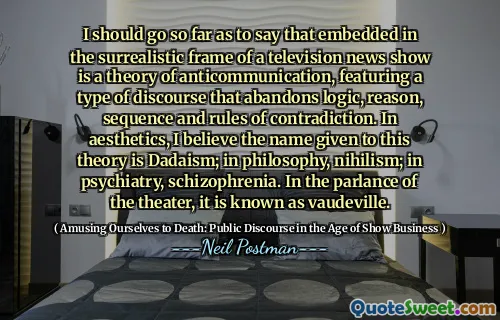
Cinema reflects culture and there is no harm in adapting technology, but not at the cost of losing your originality.
The quote emphasizes the intrinsic relationship between cinema and culture, highlighting how films serve as a mirror to societal values, beliefs, and traditions. Visual media has always been a powerful tool to document and showcase cultural identity, shaping perceptions both domestically and globally. As technology advances, filmmakers have new tools at their disposal—special effects, digital editing, virtual reality—that can significantly enhance storytelling. Embracing these innovations can lead to more immersive and compelling narratives, broadening the scope of artistic expression. However, this progress must be balanced carefully. There's a delicate line between leveraging technology to enrich one's creative vision and diluting originality due to over-reliance on trendy effects or foreign influences. Maintaining authenticity and staying true to cultural roots is essential for preserving a unique voice in filmmaking. When originality is sacrificed, the films risk becoming superficial remakes or hollow imitations devoid of genuine cultural essence. The essence of good cinema lies in its ability to tell authentic stories that resonate deeply with audiences, sparking reflection, dialogue, and connection. Therefore, while adaptation to technological change is beneficial, it should not override the fundamental need for originality and cultural fidelity. Filmmakers must strive to innovate without losing sight of their cultural identity, ensuring their work remains meaningful and true to their heritage. This balance fosters creative growth while safeguarding cultural diversity through cinema.










